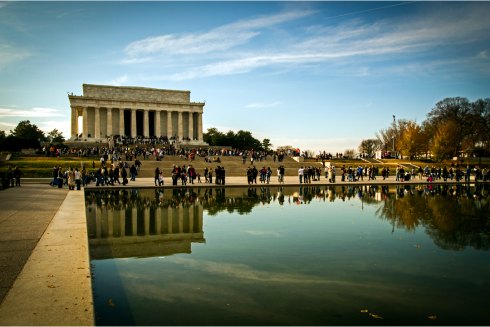
(Part I)
Some astute person once stated, “Politics is the art of turning public money into private money.” Unless you have been hangin’ out on Mars, you certainly know that to be true. Named by some as the “wealthiest area in the nation,” Washington, D.C., called Chocolate City by Parliament Funkedelic, despite its wealth, has some serious issues that, as usual, have a disproportionately negative affect on Black folks.
As if the public school system troubles are not enough, a major part of D.C. languishes in poverty and the related crime and continues on its downward spiral to what Charles Dickens described in his famous book, Tale of Two Cities, “It was the best of times, it was the worst of times, it was the age of wisdom, it was the age of foolishness, it was the epoch of belief, it was the epoch of incredulity, it was the season of Light, it was the season of Darkness, it was the spring of hope, it was the winter of despair.”
From an up close and personal perspective, I have observed D.C. for the past three years, having made a least 30, 2-4 day trips there. Of course, I have been going to Chocolate City since the 1970s but didn’t pay the same attention to it as I do now. Those of you in my age group, especially the men, know exactly what I am talking about. Each time I drive or walk down U Street and see the Bohemian Cavern building, thinking about El Dee Young of the Ramsey Lewis Trio, (Remember that “record” album); I also think about ownership and the lack thereof among Black Washingtonians.
I think about the many brothers and sisters who sleep on the streets; I think about the crime, especially the murder of Howard University student, Omar Sykes, and the rape of two young women on Howard’s campus; I think about the recent convergence of thousands of Delta Sigma Theta sisters, whose sorority was founded 100 years ago at Howard, having very few choices near that campus to enjoy a meal at a Black-owned restaurant or a Black-owned hotel; I think about the dearth of Black businesses, compared to the famed U Street days, and the millions that will be spent during the upcoming 50th anniversary March on Washington, which in the process will also be a march to spend our dollars at businesses other than our own; and I think about the dichotomy and irony of yet another majority Black populated city, contiguous to what is called the richest Black county (Prince George’s) in the nation, having such disparate economic conditions.
D.C. is also home to another famous corridor, K Street, where former politicians who are now called lobbyists work and reside. These and others in the collar counties of Virginia and Maryland comprise the wealth attributed to D.C.’s rise to the top of this nation’s money tree. In a town that produces very little, other than hundreds of thousands of pages of regulations and hundreds of thousands of more pages to explain those regulations, and in a town that survives and thrives off the public till, the money is flowing and it’s the “best of times.” In contrast, in a town once known as Chocolate City, many Blacks are suffering in the “worst of times.”
One of the highest grossing McDonald’s restaurants in this country is located just across the street from one of the nation’s most revered HBCU’s, Howard University, whose students have very limited choices when it comes to getting a reasonably priced nutritious meal off-campus. The few fast food restaurants near the campus pale in comparison to those adjacent to the University of Maryland or Georgetown, for instance. One that comes to mind is a place named Howard China, or as Howard students call it, “Ho-Chi.” The place is a real let down when you go inside and see the “décor;” but it has adopted, or co-opted, Howard’s name and attracts thousands of student-patrons each year for, of all things, chicken wings.
There are other places I could name as well, so please don’t think I am singling out just one. There is a Subway, a Potbelly, a Starbucks, a Frozen Yogurt store, and a Jamaican restaurant as well. After hearing commercials about the family restaurant across the street from Howard Hospital, on Carl Nelson’s radio show (wolcnews.com. WOL 1450 AM), I went there only to find it was closed during the weekday afternoon I tried to support it. Howard Hospital on Carl Nelson’s radio show (WTalk about food deserts; there is one in the “small city” called Howard University, which points out our dysfunctional behavior when it comes to economic empowerment.
In a town that boasts of Benjamin Banneker’s prowess, Black-owned businesses of the past, statues and museums that depict icons and achievements by Blacks, and in the town where a Black family resides in the White House, you would think there would be a bit more than just politics as usual. You would think there would be more economic empowerment. Now that you know “where da money at,” in Chocolate City, look for and answers and solutions in part two of this article next week.
Jim Clingman, founder of the Greater Cincinnati African American Chamber of Commerce, is the nation’s most prolific writer on economic empowerment for Black people. He is an adjunct professor at the University of Cincinnati and can be reached through his Web site, blackonomics.com.
